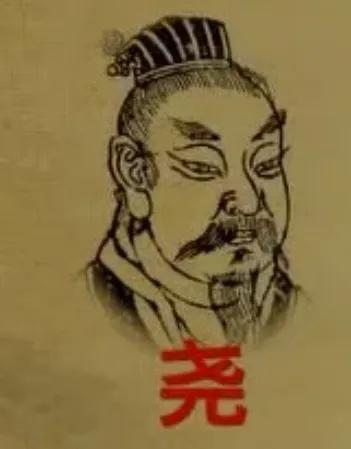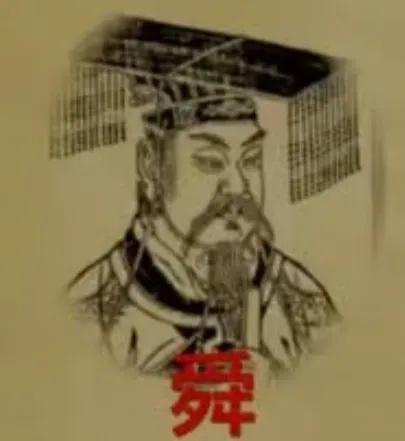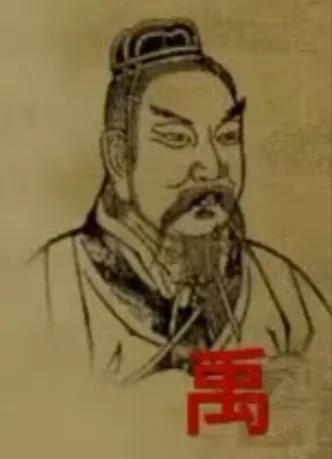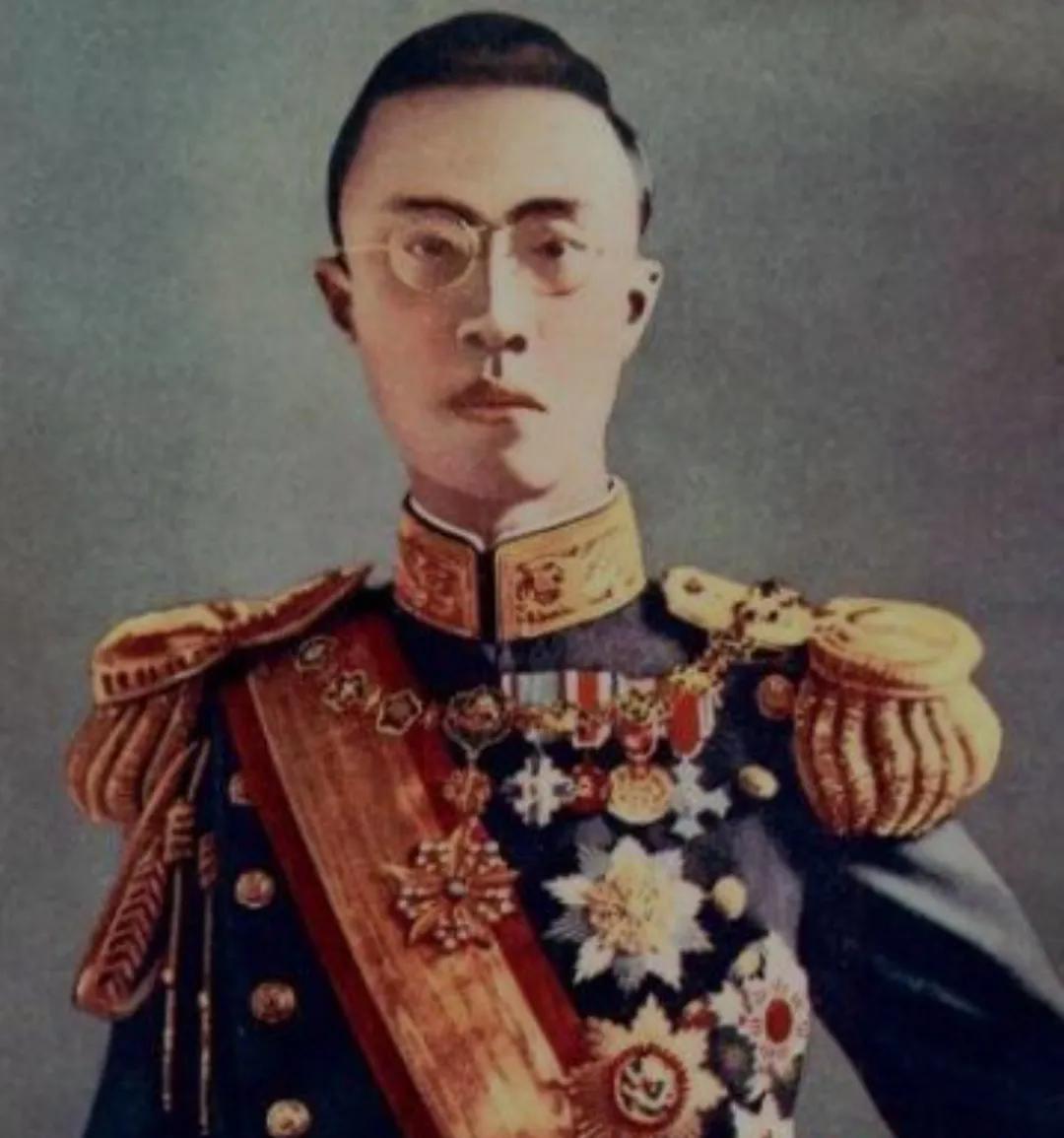Emperor Ku reigned for 70 years and lived to be 105 years old (some say 100 years old). After Emperor Ku died, his son Emperor Yaoli was born.
Emperor Yao was old, and asked the officials around him: Who can take the position of emperor after death? Fang Qi recommends his son Danzhu, and recommends Gong Gong. However, Emperor Yao saw through the stubborn nature of the two and did not take advice, so the matter was shelved for the time being. When Emperor Yao reigned for 70 years, he asked his ministers about this again.
Everyone recommends one person: Shun, the son of the blind man, whose mother is stupid and whose brother is arrogant, but he can still possess noble virtues and observe filial piety. Emperor Yao married two daughters to Shun (one is Ehuang, the other is Nvying, who gave birth to Shangjun), and let nine sons live with Shun to study Shun's virtue.
Shun Guoxian. After Yao reigned for seventy years, he won Shun. Twenty years later, he abdicated at an old age, allowing Shun to act as the Son of Heaven instead of him, and recommended him to heaven. Yao died twenty-eight years after his abdication.
During this period, Shun moved Sanmiao to Sanwei to integrate with Xirong; exiled Gonggong mentioned above to Youling to integrate with Beidi; drove Jindou to Chongshan to integrate with Xirong The southern barbarians merged; Gun was killed in Yushan to merge with the Dongyi.
After Emperor Yao's three-year mourning period ended, Shun abdicated the throne to Yao's son Danzhu, but all the people in the world surrendered to Shun, and the era of Emperor Shun came.
Here is an extra sentence. Although Sanmiao, Gonggong, Guandou, and Gun have since withdrawn from the stage of history, these four people have a lot of background, and the names of these four people have been handed down to this day in another form.

Sanmiao, son of the Jinyun clan, is Taotie.
Gonggong, a descendant of the Shaohao family, is Qiongqi.
Guandou, the son of the Dihong clan, turned his resentment into a beast after his death, which was called Chaos.
Gun, the son of Emperor Zhuanxu and the father of Emperor Yu, turned into Prayer after death. The four of them are the ancient four fierce beasts.
Of course, in ancient times, historical facts were mixed with myths, and there were many true and false theories. Here are the mainstream ones for reference.
Yu Shun's name was Chonghua. His father's name was Gusou, and his mother died early. Gusou continued to marry wives and gave birth to Xiang, who was arrogant and wanted to kill Shun many times, but Shun always maintained his noble character, being filial to his parents and loving his brothers.
The story of how Emperor Shun was stabbed in the back by his family members is described in detail in middle school textbooks, so I won't go into details here. Emperor Shun was appointed by Yao at the age of thirty, acted as the Son of Heaven at the age of fifty, Yao died at the age of fifty-eight, and succeeded Yao to the throne at the age of sixty-one.
After you became the son of heaven, Emperor Shun still maintained filial piety and loved his parents. What's even more valuable is that he didn't hurt his younger brother Xiang who had killed him several times, and even sealed him in Youbi, ranking among the princes.
Emperor Shun was old, and because his son Shangjun was not worthy, he followed the example of Emperor Yao, enfeoffed Shangjun to Shang, and became the founding king of the Yu Kingdom in the Later Xia Dynasty. Of course, Shang Jun has nothing to do with Shang Tang, which founded the Shang Dynasty. Shang Tang is a descendant of Qi, as explained in the previous chapter.

Emperor Shun abdicated the position of Son of Heaven to Yu. Yu's father, Gun, was killed in Mount Yu due to poor water control during Shun's regency. After Gun's death, the heavy responsibility of flood control was handed over to his son Yu. Yu learned from his father's lesson, turned the blockage into dredging, successfully cured the flood, and won the hearts of the people.
So Shun recommended Yu to the Emperor of Heaven before his death. Seventeen years later, Emperor Shun passed away. At the end of the three-year mourning period, Yu followed the example of Emperor Shun and abdicated the throne to Shun's son Shangjun.
Emperor Yu clarified the Kyushu five service system. The emperor's capital is five hundred miles away, which is the so-called Wangji area, which is directly governed by the emperor and collected taxes, which are divided into five classes.

It is for Dianfu; five hundred miles away from Dianfu, the emperor does not directly administer it, but the princes directly manage it, and regularly pay offerings to the emperor.
It is for waiting service; waiting for service five hundred miles away, you need to obey the king's politics and religion, and you don't need to pay offerings.
It is for subjugation; five hundred miles away from the subjugation, it is divided into two parts. Within three hundred miles, it is only necessary to obey the king's culture and education, and for another two hundred miles, it is only necessary to express acceptance of the king's criminal law, which is also a place of exile.
It is for obedience; it is obsequious for obedience.
Later generations of the Western Zhou Dynasty formulated the nine clothes of the Western Zhou Dynasty on this basis. In fact, the king's hand can no longer be touched, and the inner part is called "Kyushu of the King", namely: Jizhou, Yanzhou, Qingzhou, Xuzhou, Yuzhou, Yongzhou, Liangzhou, Yangzhou and Jingzhou. Within Kyushu is "Hai Nei", and outside Kyushu is "Four Seas".
The "four seas" are in the shape of seven Rong, six barbarians, nine barbarians, and eight Di, in short, it is called the four seas. As for the "Five Lakes", it is also recorded in "Zhou Li Xia Guan Zhi Fang Shi".
So far, the concepts of "Five Lakes", "Four Seas" and "Kyushu" have been imprinted in the hearts of every Chinese son and daughter.
Emperor Yu collapsed fifteen years later and gave the world Zen to Yi, and the princes went to Yi Dynasty to Yu Ziqi. From then on, the son inherited the father's throne, replacing the Zen system, and continued until the last emperor of the Qing Dynasty: Aixinjueluo·Puyi.

Finally, let me explain: the history recorded in the history books is not necessarily the historical facts. The ancient times were mostly myths, which were very messy. It was not easy for ancient historians to arrange the logic and form a relatively reasonable explanation.
The essence of the history books I understand is that the historian who compiles the history book selectively records and reasonably imagines the real events in the environment of the time, and uses it as a means for the historian or the forces behind it to convey its values to the world. a method.
So: history is politics. In addition, Chinese historians have always revised the history of previous dynasties. Due to the constraints of the emperors under feudal rule, many historical facts harmful to the current dynasties were revised to satisfy the legitimacy of the emperor's rule. This phenomenon became more prominent after the first four histories. .
China's mainstream history books are all based on Confucianism. Under the Confucian concept of benevolence and righteousness, it is inevitable that the history of the Yao, Shun and Yu periods will be interpreted by historians as the beautiful imagination and speculation of the abdication system.
The change of dynasties of Yao, Shun and Yu is another bloody explanation. As for which one is real, I leave it to you to think for yourself.